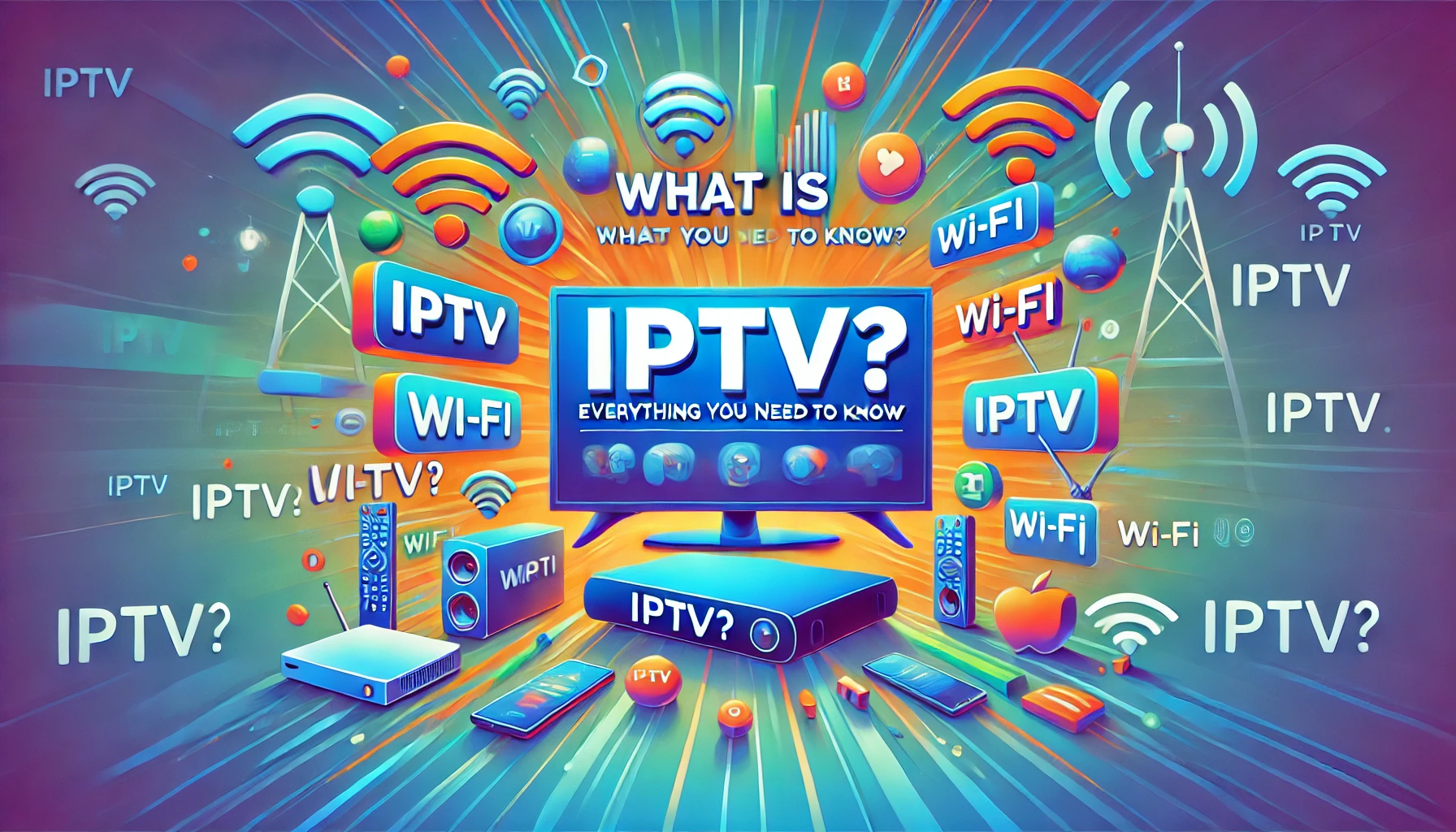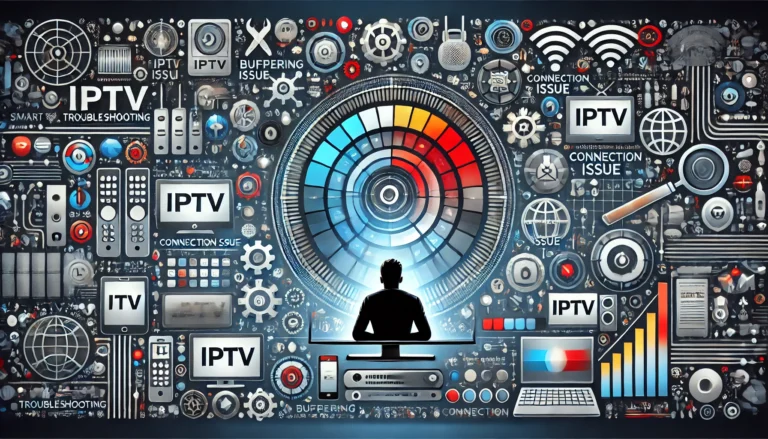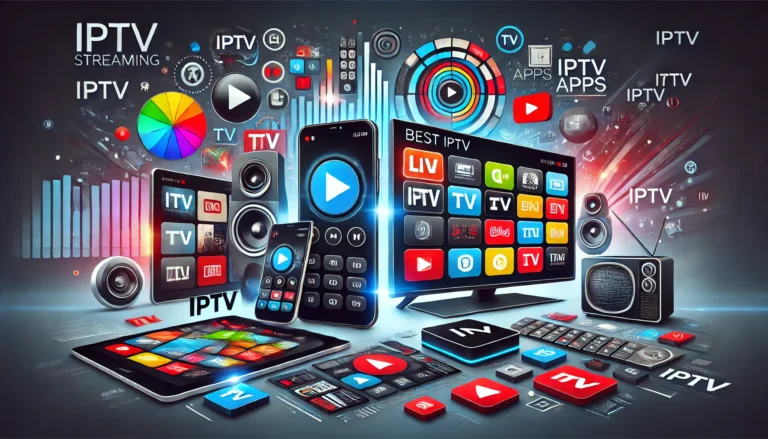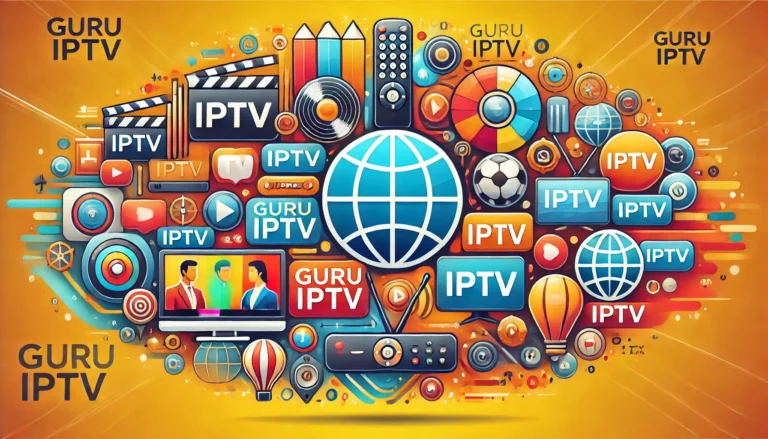What is IPTV? Great things You Need to Know
Table of Contents
Introduction
In the rapidly changing world of television, IPTV (Internet Protocol Television) is making waves as an alternative to traditional cable and satellite TV. As more users shift toward streaming content, IPTV offers an exciting solution for those seeking flexibility, quality, and an expansive range of programming. In this post, we’ll dive deep into what IPTV is, how it works, and why it’s gaining so much traction.
What is IPTV?
IPTV is a system that uses the internet to deliver television programming, as opposed to traditional satellite or cable services. Unlike conventional television, which relies on radio waves or satellite signals, IPTV streams content over the internet, allowing users to watch TV shows, movies, sports, and more through a broadband connection. With IPTV, your entertainment options are only limited by the internet speed and the device you use.
How IPTV Works
IPTV operates by sending content over the internet using IP-based networks. Here’s how it works:
- Content is Encoded: IPTV service providers receive and encode TV content into digital packets.
- Transmission over the Internet: The content is transmitted over your internet connection to your devices, using streaming protocols like HTTP and RTSP.
- Decoding for Display: A device, such as a smart TV, tablet, smartphone, or laptop, decodes this data and displays it for you to enjoy.
The key to IPTV’s success is its ability to offer high-quality streaming without the limitations of traditional TV signals.
Types of IPTV Services
IPTV can be broken down into three primary types, each offering unique experiences for users.
1. Live IPTV
Live IPTV is the closest thing to traditional TV viewing. With live IPTV, users can watch TV channels in real-time, just as they would with cable or satellite TV. You can watch live sports, news, and events as they air. Live IPTV often includes interactive features like pause, rewind, or catch-up TV, adding a layer of convenience and flexibility.
2. Video on Demand (VOD)
With Video on Demand, IPTV services provide access to an extensive library of movies, TV shows, documentaries, and other content. Unlike traditional TV, where you must watch content at a specific time, VOD allows users to select and watch whatever they want, whenever they want. Popular services like Netflix and Hulu are essentially VOD platforms, but IPTV provides even broader access through your internet connection.
3. Time-Shifted IPTV
Time-shifted IPTV lets you catch up on shows you missed or watch replays of live events. For instance, if you missed a live broadcast of a sports game, you can watch it at your convenience. Features like pause and rewind live TV are also included in this service, allowing you to control how and when you view content.
Benefits of IPTV
IPTV has many advantages over traditional TV services, making it a popular choice among users worldwide.
1. Wide Range of Content
IPTV services provide access to thousands of channels, including international programming, niche channels, sports, and pay-per-view content. You can watch content from around the world, often with language options and subtitles for broader accessibility.
2. High-Quality Streaming
With IPTV, users can enjoy content in high-definition (HD), 4K, or even 8K resolution, depending on the service and device. IPTV is not limited by satellite or cable infrastructure, making it ideal for delivering top-tier video quality.
3. Flexibility and Convenience
Unlike traditional cable TV, IPTV is flexible. It allows you to watch content across multiple devices—whether you’re using a smart TV, mobile phone, or tablet. You can watch your favorite shows at home, in a cafe, or while traveling.
4. Interactive Features
Many IPTV services provide interactive features such as on-demand content, live TV pause, and instant channel switching. These features give users the freedom to tailor their viewing experience and enjoy TV on their terms.
How to Choose the Right IPTV Service
When selecting an IPTV service, consider the following factors to ensure it meets your needs:
1. Internet Speed
Since IPTV relies on the internet to stream content, a high-speed broadband connection is crucial. Check the service provider’s speed requirements and make sure your internet can handle the bandwidth needed for smooth streaming.
2. Device Compatibility
IPTV works on a variety of devices, including smart TVs, smartphones, tablets, laptops, and set-top boxes. Make sure the IPTV service you choose supports the devices you plan to use.
3. Content Library
Check the IPTV service’s content offerings. Some services provide a broad range of channels, while others focus on specific genres like sports or movies. Make sure the service offers the content you enjoy most.
4. Pricing and Plans
IPTV services come in various pricing plans, so it’s important to compare them to find the best deal. Some services offer subscription bundles, while others allow you to pay-per-channel or per-program.
Conclusion
IPTV is reshaping the way we consume television, offering a more flexible, high-quality, and customizable viewing experience. Whether you’re cutting the cord from cable or just looking for a more convenient way to watch TV, IPTV is a solid solution. By understanding how IPTV works, the different service types, and the benefits it provides, you can make an informed decision about whether it’s the right choice for you.
Ready to explore the world of IPTV? Start researching the best IPTV providers today to unlock endless content and innovative features!





